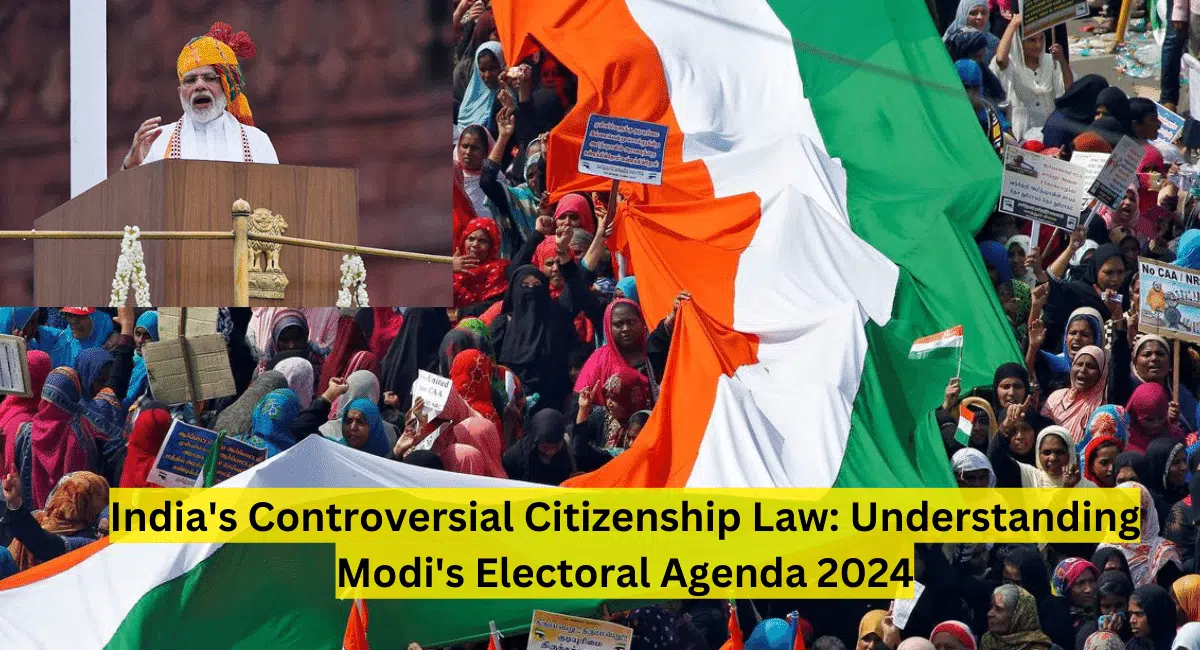Controversial Citizenship Law Implemented in India: Part of Modi’s Election Manifesto.
The Indian government implemented a controversial citizenship law in 2019, which critics perceive as anti-Muslim. According to British news agency Reuters, the spokesperson for the Prime Minister’s Office stated in a message that “the Modi government has announced the implementation of the Citizenship Amendment Act.”
Referring to the 2019 election manifesto of the ruling Bharatiya Janata Party (BJP), they said, “It was a crucial part of the BJP’s 2019 election manifesto. It will ease the path to citizenship for the oppressed in India.”

A statement issued by the Ministry of Home Affairs stated, “This law will remove legal barriers in the path to citizenship for refugees and provide dignified lives to individuals who have been facing difficulties for decades.”The statement further mentioned that there have been many misconceptions about this law and its implementation has been delayed due to the COVID-19 pandemic.
This law is only for those who have been victims of oppression for years and have no refuge other than India in the world, the statement added.Under this amendment act, Hindus, Parsis, Sikhs, Christians, Buddhists, Jains, and others who migrated from Muslim-majority countries such as Afghanistan, Bangladesh, and Pakistan before December 31, 2014, can be granted Indian citizenship.
The Modi government did not implement this law after December 2019 because protests and communal violence erupted in New Delhi and other regions. Several people were killed and hundreds were injured during the clashes that lasted for several days.Human rights organizations and Muslim groups argue that this law, combined with a proposed nationwide National Register of Citizens (NRC), could discriminate against India’s 200 million Muslims.
Some fear that the government could revoke the citizenship of Muslims in some border states without documentation.The government refutes the criticism of this law being anti-Muslim, stating that it is necessary to help minorities facing persecution in Muslim-majority countries. The government maintains that the purpose of this law is to grant citizenship and not to take it away from anyone.





